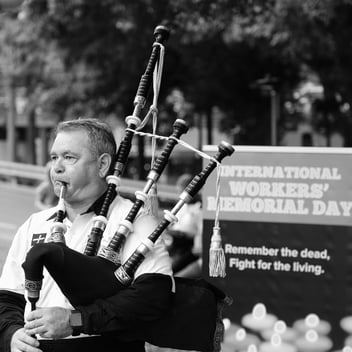Decrim Bill a sign of respect for Qld sex workers
The Queensland Council of Unions welcomes the tabling of a Bill which will scrap the last century prostitution laws in State Parliament today.
The Bill will decriminalise the outdated and dangerous laws that make many sex workers vulnerable to violence, robbery, and unfair prosecution by authorities.
QCU General Secretary Jacqueline King says the Premier and Attorney General have delivered on their commitment to introduce the Bill as a priority in 2024 and the proposed laws were welcomed by both the Queensland union movement and DecrimQLD who have long advocated for their removal.
 “When these laws get through the Parliament, sex workers will no longer be forced to work alone in the shadow of the law without safety strategies and protections. The changes will help protect sex workers from the threat of violence to their personal safety by removing the criminal nature of their work and ensuring access to the same work health and safety laws and workplace rights as all other Queensland workers”.
“When these laws get through the Parliament, sex workers will no longer be forced to work alone in the shadow of the law without safety strategies and protections. The changes will help protect sex workers from the threat of violence to their personal safety by removing the criminal nature of their work and ensuring access to the same work health and safety laws and workplace rights as all other Queensland workers”.
Janelle Fawkes from DecrimQLD says it’s an historic day that is long overdue.
“Sex workers will be able to go to their place of work without fear of prosecution and carry out their work freely and safely like every other person in Queensland.”
It is expected the decriminalisation laws will take effect mid year.
Watching from State Parliament today Ms King said today’s reform is an example of the modern Queensland that unions fight for every day. This Bill represents the type of change that can occur when unions partner with advocates like DecrimQLD to campaign together to improve the lives of everyday Queenslanders.
“It doesn’t matter who you are or what type of worker you are – if you are an electrician, a plumber, a nurse, a teacher, a child care worker, a sex worker, or a stripper, unions will stand with you”.
All sex workers deserve to be treated equally and without fear of discrimination – whether that’s when accessing accommodation, in ensuring work health and safety and industrial rights, or applying criminal consent laws equally,” Ms King said.



